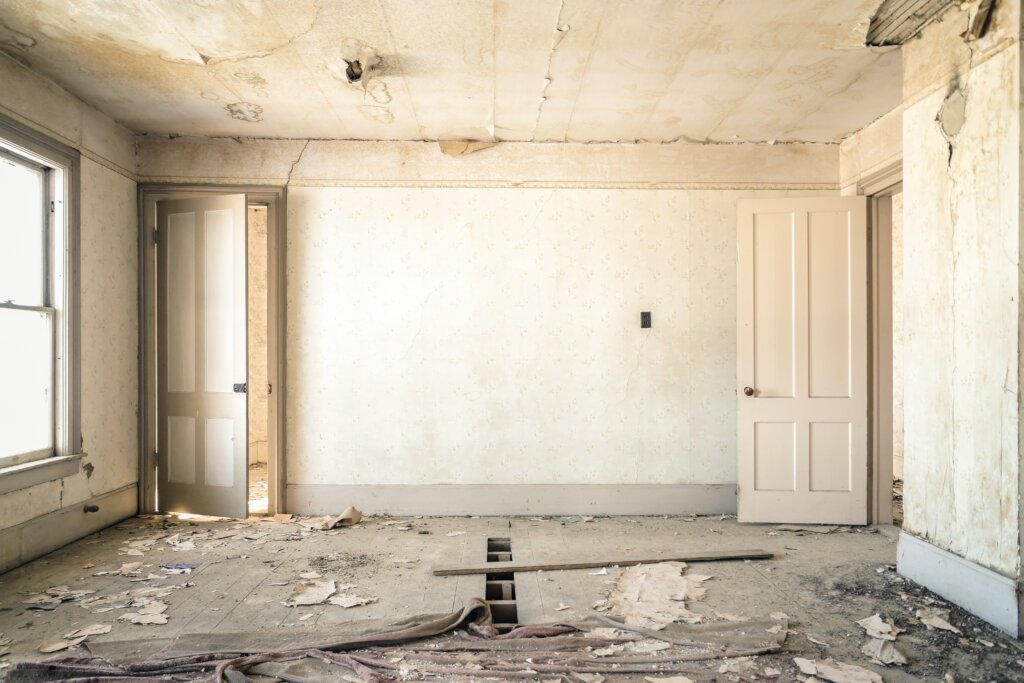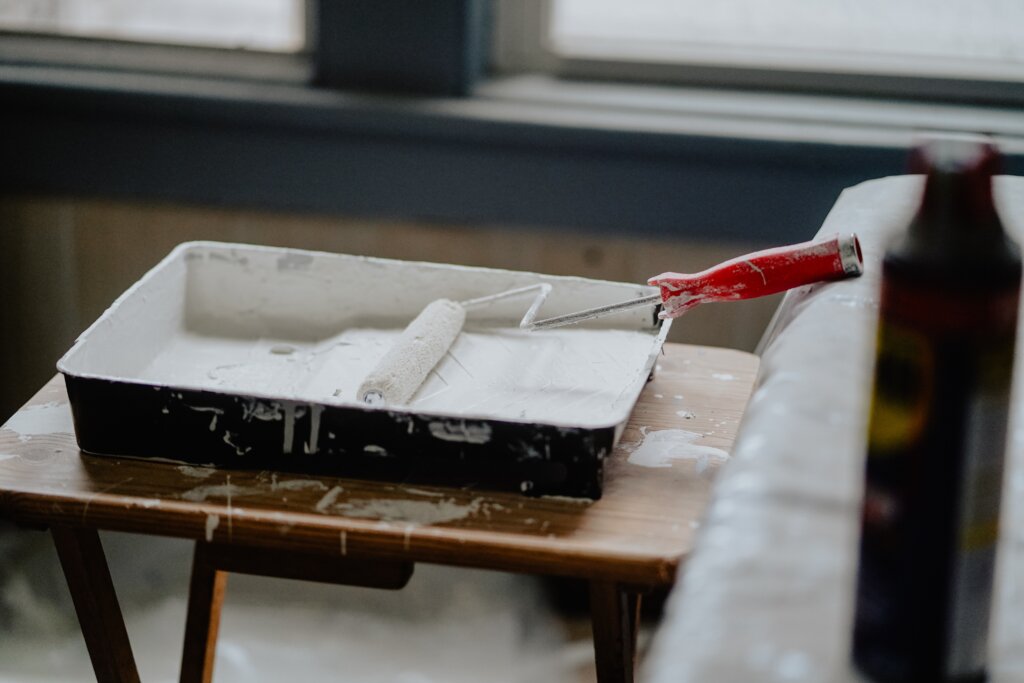
When considering purchasing a fixer-upper house, we know that it may seem challenging, but when the process is done right, it can be a gratifying experience. But with fixer-upper homes, you should always be ready for the unexpected. Whether you plan to use the home as an investment property or as your next home, if you’ve been considering a fixer-upper house, you’ve most likely been wondering how to buy a fixer-upper house with no money.
As you continue reading below, we’ll discuss some of your options if you’ve been considering buying a fixer-upper house but don’t have the funds to do so.
How to Buy a Fixer-Upper House With No Money: 10 Ways You Didn’t Know About

There are several ways you can purchase a fixer-upper house without upfront and future costs. Let’s take a look at some of your options that will help assist you in both scenarios.
1. Credit Cards
If you’ve been wondering how to buy a fixer-upper house with no money, one of your first options might be to use credit cards. While we know using credit cards may have advantages and disadvantages, it remains one of the primary options. Generally, a high-interest approach, using credit cards, can be a top solution for many people who are buying a fixer-upper house.
You should only plan to use credit cards if you want to take advantage of zero percent or low introductory offers if you plan on using DIY projects to renovate the home, or if you have a limited budget.
It’s essential to remember that you should avoid applying for new credit before closing on a fixer-upper house, as it can create negative remarks on your credit score. Additionally, you’ll want to avoid applying for multiple credit cards at once.
2. Personal Loans
If you’re unable to get a home equity loan, personal loans are also an option when purchasing a fixer-upper house. However, we must note that personal loans are also a high-interest debt option. If you’re part of a credit union with better options, we recommend choosing the personal loan option.
3. VA Loans
While researching how to buy a fixer-upper house with no money, a VA home renovation loan will waive your PMI and down payments if you qualify. So, what is a VA home renovation loan? A VA home renovation loan includes two loans that cover the home’s purchase price and repairs.
However, it’s essential to remember that a VA home renovation loan may have a slower process than government-backed loans, so if you’re on a tight schedule, a VA loan may not be your first choice.
One of the best advantages of this loan is that there isn’t a minimum credit score, so even if your credit score is between 580 and 620, you may still qualify for the loan.
However, there are specific requirements when obtaining a VA home renovation loan:
- Renovations can’t exceed $50,000, $75,000 in some cases, depending on your lender
- You must provide the lender with your renovation plans
- Before closing, a licensed contractor must submit a repair bid
- You can only use licensed contractors with a valid VA builder identification card, so DIY projects aren’t allowed.
- You must have a VA inspect your renovated loan to ensure it meets the standards of the lender.
4. USDA Loan
If you’re a low-income family, there’s a good chance that you might qualify for a USDA home renovation loan. We must mention, however, that there aren’t many lenders who will offer a USDA home renovation loan, but when found, they can have many advantages. Some advantages of obtaining a USDA loan are that there are no down payments required, they have reduced mortgage insurance rates and below-market mortgage rates.
5. Fannie Mae Loan
One of the top results when researching how to buy a fixer-upper house with no money is a Fannie Mae renovation mortgage loan. You can use this loan for your primary residence or investment property. Some requirements for obtaining a Fannie Mae loan are that you must have a minimum credit score of 620, your renovations must be completed within twelve months of your loan date, and your total loan max is seventy-five percent of your ARV (after repair value).
When using a Fannie Mae renovation mortgage loan, there are some stipulations you’ll want to consider. First, you can make any renovations that include luxury additions. Second, you must use an approved licensed contractor. Third, any renovation reimbursements will be paid from an escrow account in specific stages.
Lastly, Fannie Mae will send an appraiser to approve your renovations before they pay you.
6. Freddie Mac
Freddie Mac CHOICERenovation loans are similar to Fannie Mae loans, with only one vital difference. In contrast to Fannie Mae, Freddie Mac loans will allow you to disaster-proof your fixer-upper house and make other disaster-prevention improvements to your home.
7. Programs or Grants
We recommend loan programs or grants when researching how to buy a fixer-upper house with no money. These programs or grants will fund neighborhood fixer-uppers, low-income home renovations, and distressed properties. Loan programs and grants vary depending on your state or county and can come from a non-profit company or government.
8. HELOC (Home Equity Loans)

If you own a home with at least fifteen to twenty percent equity, you may take out a home equity loan to purchase a fixer-upper house. When using a home equity loan, you’ll place your home up as collateral, meaning you’ll have a lower interest rate than an unsecured loan. However, using a home equity loan can increase your chances of foreclosure if you fail to pay on the loan.
Using a home equity line of credit is an excellent option for making home improvements if you’re confident that you can repay the loan. It’s essential to remember that a home equity loan typically has a fixed rate for a specific amount, has a slightly higher rate, and is similar to a short-term credit card, allowing you to borrow up to eighty or ninety percent, depending on your chosen lender.
9. Cash-Out Refinancing
When you use cash-out refinancing towards a fixer-upper house, you will refinance your mortgage and borrow additional amounts in the form of cash from your home equity. If you can make better negotiations for low-interest rates and payments, this can be an excellent option for flippers. It’s essential to note that using a cash-out refinancing option may come with a higher rate than a traditional mortgage.
10. FHA 203k Mortgage
When using a FHA 203k mortgage for a fixer-upper house, it will cover repair costs to your existing home, as long as it’s at least one year old, in addition to the price of your home. With this loan, you must have a credit score of at least 620 – 640, have a down payment of around three percent or more, and are allowed a total loan amount of one hundred and six percent of the ARV (after repair value).
When using a FHA 203k mortgage loan, there are some restrictions to remember. First, you must choose a contractor to make the repairs. Second, you must have a lender review and approve your bid. Third, your contractor will pay your renovation bill to the escrow account.
Fourth, structural and cosmetic repairs may not exceed $5,000. Lastly, you must have a HUD-approved professional inspect your fixer-upper renovation once it’s completed.
Final Thoughts
While it may seem more straightforward to buy a fixer-upper house when you have cash on hand, it’s possible to buy a fixer-upper house when you have no money. If you have enough determination and creativity, you can use several resources to help renovate your fixer-upper house.
Fixer-Upper House: FAQ
1. How do people afford fixer-uppers?
Some financing options are available to help pay for your fixer-upper house, including an FHA 203k mortgage loan or a Fannie Mae homestyle renovation mortgage.
2. Can you use a USDA loan on a fixer-upper house?
You can use a USDA loan on a fixer-upper house; however, there are specific requirements. Your renovation costs can’t exceed more than ten percent of your loan amount, and the fixer-upper house must be in livable condition.
3. How much do homeowners pay on fixer-uppers?
On fixer-uppers, a homeowner must have a home purchase price under $200,000 and at least $30,000 in home renovations.
4. What should you avoid in a fixer-upper?
In a fixer-upper house, you should avoid homes with foundation issues, leaking basements, mold, plumbing issues, and pest infestations.
5. What should I fix first on a fixer-upper house?
The first thing you should do is hire a house inspector to look for hazards and issues within the home, such as plumbing, roof, and electrical issues.
6. How do you tell if a fixer-upper house is worth it?
When purchasing a fixer-upper house, you should always have the home inspected because there’s always a chance that the home may only need superficial repairs.

